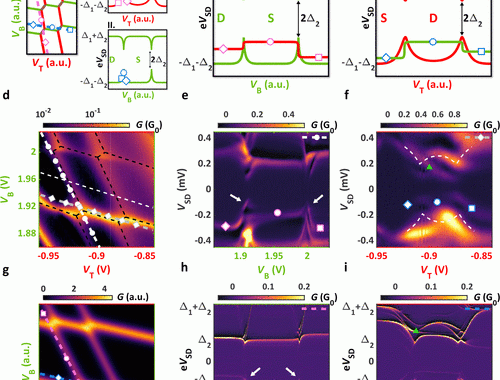
Andreev Molecule in Parallel InAs Nanowires
Authors:Olivér Kürtössy, Zoltán Scherübl, Gergö Fülöp, István Endre Lukács, Thomas Kanne, Jesper Nygård, Péter Makk, and Szabolcs Csonka
Nano Lett. 2021, 21, 19, 7929–7937
Abstract: Coupling individual atoms fundamentally changes the state of matter: electrons bound to atomic cores become delocalized turning an insulating state to a metallic one. A chain of atoms could lead to more exotic states if the tunneling takes place via the superconducting vacuum and can induce topologically protected excitations like Majorana or parafermions. Although coupling a single atom to a superconductor is well studied, the hybridization of two sites with individual tunability was not reported yet. The peculiar vacuum of the Bardeen–Cooper–Schrieffer (BCS) condensate opens the way to annihilate or generate two electrons from the bulk resulting in a so-called Andreev molecular state. By employing parallel nanowires with an Al shell, two artificial atoms were created at a minimal distance with an epitaxial superconducting link between. Hybridization via the BCS vacuum was observed and the spectrum of an Andreev molecule as a function of level positions was explored for the first time.
